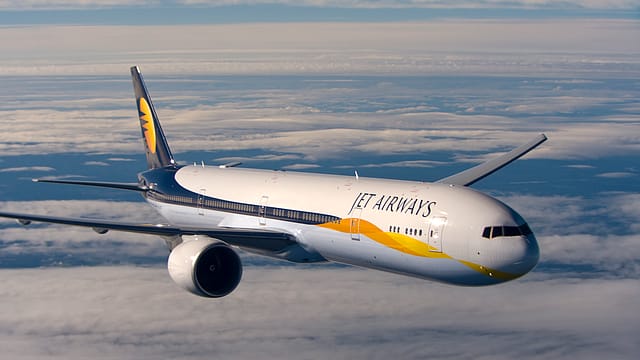Lender disagreement can spook Jet revival
ADVERTISEMENT

In their last several meetings, a consortium of lenders, led by state-owned State Bank of India (SBI), hasn’t been able to sew up emergency funding for Jet Airways to stay afloat. In the last 10 days, India’s second-biggest airline has grounded planes and is no longer taking advance bookings for its international flights as it has no monies to pay for its expenses.
Since Jet Airways defaulted on its loan in early January this year, a consortium of banks has been trying to keep the airline flying by instituting a Bank-led Resolution Plan (BLRP) for its ₹8,200 crore debt. The Jet board decided to swap its loans for equity, giving its lenders the control of the company. Soon after, the lenders comprising half a dozen banks have been trying to arrange an emergency line of ₹1,500 crore to enable the airlines to conduct its day-to-day operations.
Only ₹300 crore of that credit line has fructified so far forcing the airline’s management to progressively shut down its operations. The airline has not paid its employees since December 18, and its pilots have threatened to go on an indefinite strike. Jet now only flies seven planes compared to 123 a year ago, thanks to the pruning it has had to do to contain costs.
Among the lenders, four state-owned banks–SBI, Bank of India, Canara Bank and Syndicate Bank–are said to be in favour of advancing the interim loan while Punjab National Bank, ICICI Bank and Yes Bank are against signing further cheques. Punjab National Bank, which was duped early last year by jeweller Nirav Modi for nearly ₹11,500 crore, is recovering from a huge loss and is making an attempt to become profitable this year. According to a bank executive, who did not wish to be identified, the bank is trying hard to contain its non performing assets (NPA) this year and wants to best avoid lending to doubtful entities.
In the case of the two private sector banks, ICICI Bank and Yes Bank, they don’t want to increase exposure to an account that is already in the doubtful zone. In the recent past, both the banks were under the scanner of the central bank for not classifying their bad loans properly leading them to report lower NPAs. It is understood that these banks now want to be doubly cautious as they don’t want to be seen lending to a doubtful entity.
“The private bank managers will find it hard to explain to their boards, in light of the recent strictures, on why they lent to firms that don’t have a clear plan to pay up the existing dues,” says a banking analyst.
At the moment, the three lenders who are opposed to release further monies to Jet want the airline promoters to bring in additional capital. They think the additional capital infusion will demonstrate the seriousness of the promoters to run the company and to that extent lower their debt burden. That, however, doesn’t seem like an immediate possibility as its promoter Naresh Goyal has already pledged 31.2% to banks. He has shown no indications of bringing in additional capital into the company.
After the BLRP was instituted, part of the arrangement was to convert Jet’s debt into equity, giving the banking consortium a majority stake in the airline. This stake was then to be sold off to an interested investor in the airline, who would take over the airline as a going concern. To facilitate that, SBI invited Expressions of Interest (EOIs) from interested parties. Etihad has since submitted its offer on the penultimate day of the deadline. Naresh Goyal too submitted his offer but was eventually forced to withdraw as the other bidders didn’t want him to have a say in the airline.
A lot, therefore, hinges on the outcome of the EOIs, the results of which is expected to be announced on Wednesday by SBI Caps, an agency appointed by the banking consortium. If Jet finds a new owner who will buy the consortium’s stake, only then will the airline get additional funds from the banks to carry out its operations. But, if for some reason, finding a new owner gets prolonged, it is unlikely the banks will fund the urgent need for cash. Jet will have no option but to suspend its operations.